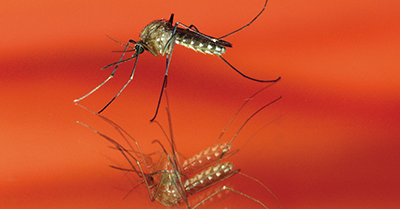 By Sean Delaney
By Sean Delaney
On August 8, received confirmation of five pools of mosquitoes in Toronto that have tested positive for West Nile virus (WNV). The mosquitoes from locations in Etobicoke, North York and west Toronto are the first to test positive for WNV in Toronto this year.
West Nile Virus is an infection transmitted to people through the bite of an infected mosquito. Toronto Public Health conducts mosquito surveillance from mid-June until mid-September every year. Once a week, 22 mosquito traps are set across the city to collect mosquitoes that are then submitted to a laboratory for identification and then grouped by the lab into pools to test for WNV. In 2021, a total of 20 positive mosquito pools were reported.
While the risk of getting infected in Toronto is currently low, TPH advises residents to take these precautions to avoid bites from infected mosquitoes:
Wear light-coloured clothing, long pants and long-sleeved shirts when outdoors.
Apply insect repellent containing DEET or icaridin and follow the manufacturer’s instructions.
Take extra care during peak mosquito-biting hours, dusk and dawn, by using repellent and covering up.
Make sure your home has tight-fitting screens on windows and doors.
Remove standing water from your property, where mosquitoes can breed. Standing water includes any water that collects in items such as pool covers, buckets, planters, toys and waste containers.
Symptoms of WNV usually develop between two and 14 days after a person is bitten by an infected mosquito. Symptoms may include fever, headache, nausea, vomiting, body aches, skin rash and swollen lymph glands. Older individuals or individuals with compromised immune systems are at higher risk of severe illness. A person who has concerns about any symptoms should contact their health care provider.
More information about WNV and ways to reduce the risk of WNV is available on the City of Toronto’s West Nile Virus webpage:
www.toronto.ca/community-people/health-wellness-care/health-programs-advice/west-nile-virus/













